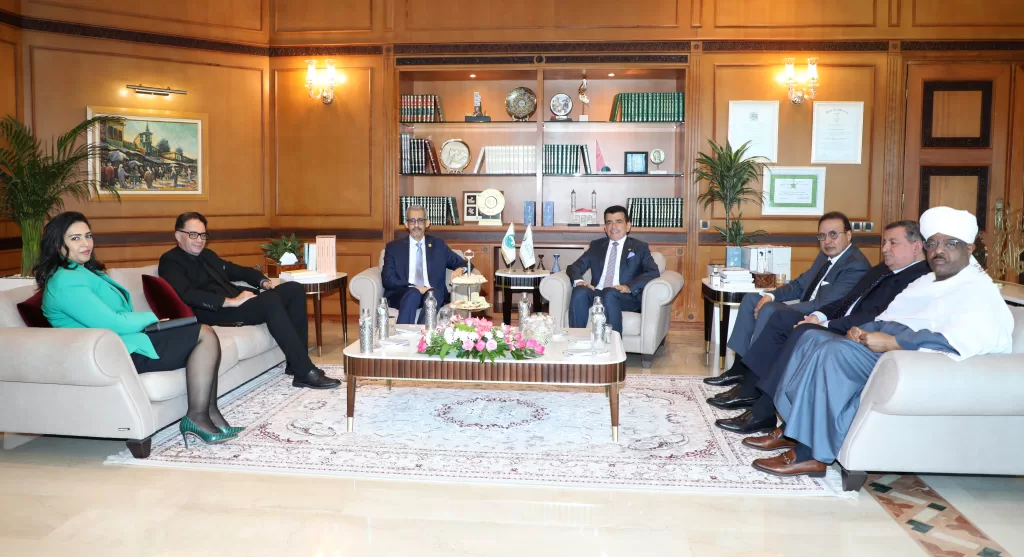
Toward a Stronger Partnership: ICESCO and ALECSO Discuss Expanding Joint Cooperation

19 April 2025
Dr. Salim M. AlMalik, Director-General of the Islamic World Educational, Scientific and Cultural Organization (ICESCO), met with Dr. Mohamed Ould Amar, Director-General of the Arab League Educational, Cultural and Scientific Organization (ALECSO), to discuss recent developments in cooperation between the two organizations in areas of shared interest. The meeting also explored future prospects for joint action to promote the Arabic language among non-Arabic speakers in African countries, support creative industries, harmonize curricula and educational systems, and raise awareness on the ethics of artificial intelligence.
At the beginning of the meeting, held on Friday, 18 April 2025, Dr. AlMalik praised the depth of the strong relationship between ICESCO and ALECSO, affirming that it goes beyond complementarity to encompass fraternity. He expressed his pleasure at Dr. Mohamed Ould Amar’s visit to ICESCO headquarters, describing it as a reflection of the two organizations’ synergy—ICESCO being a beacon for the Islamic world, and ALECSO a reference for the Arab world.
For his part, Dr. Mohamed Ould Amar lauded the strength of the relationship between the two organizations, which has created significant opportunities for cooperation and for overcoming challenges to achieve common goals. He stated: “We consider ICESCO a part and an extension of ALECSO’s work, and we are pleased with this meeting. While we face major challenges, joint action will enable us to overcome them.”
During the meeting, the two parties discussed ICESCO’s key initiatives, programs, and projects being implemented under its new vision, and the prospects for a strategic partnership between the two organizations in various areas. These include educational development, capacity-building for institutions and individuals in teaching and learning Arabic, enhancing its global presence, and exploring ways to issue a joint reference framework for the Arabic language as a strategic step toward improving its teaching quality in Arab and African countries.
They also discussed efforts to harmonize curricula and educational systems in shared member states, strengthen the creative cultural industries, and promote the role of culture in shaping economic, social, and digital policies, as well as cooperating in the field of artificial intelligence ethics.




